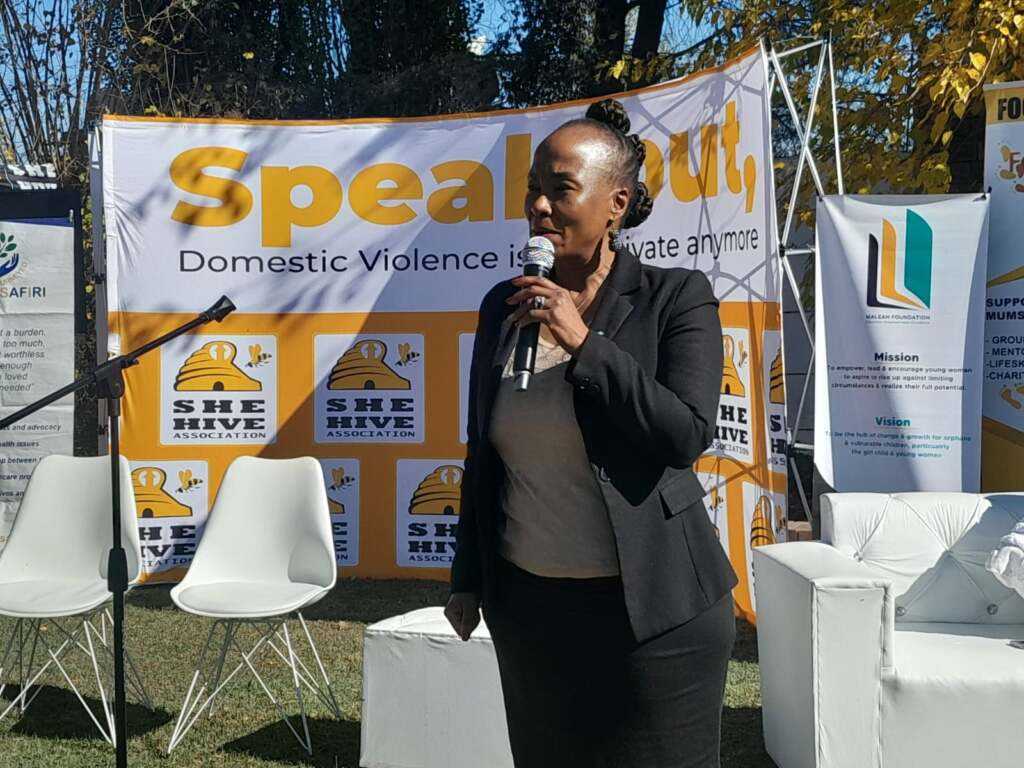Ntsoaki Motaung
During the commemoration of Menstrual Hygiene Day, organized by the Malea
Foundation, Lenka Thamae, a member of Policy Environmental Justice and Water
Resources Advocacy (PEWA), made a plea to the government to declare water and
latrines (toilets) as human rights.
Thamae emphasised that access to water and latrines is crucial for menstrual health
and hygiene. He said: “A lot of water is needed for one to use during their
menstruation periods as well as latrines for privacy.”
Menstrual Hygiene Day, celebrated annually on May 28, highlights the global
importance of good menstrual hygiene management (MHM). Initiated by the
German-based NGO WASH United in 2013, it was first observed in 2014.
This year’s theme was “Period Friendly World.”
Thamae revealed that PEWA has actively engaged the government on this issue.
“Not long ago, we wrote to the Minister of Natural Resources to request him to use
his powers and announce water and latrines as rights. Apart from him, we also
wrote to the Parliament through the portfolio committee on natural resources,” he
said.
The urgency of Thamae’s plea is underscored by alarming statistics from the
World Report on progress on drinking water, sanitation, and hygiene in schools
(2015-2023).
According to the report, one in five children (447 million) still lack basic drinking
water services at their school, one in five lack basic sanitation services (427
million), and one in three children (646 million) do not have access to basic
hygiene services.
The report highlights: “Achieving the relevant Sustainable Development Goal by
2030 will require a two-fold increase in current rates of progress for basic drinking
water, a two-fold increase for basic sanitation, and a four-fold increase for basic
hygiene services.”
Deputy Speaker of the National Assembly, Tšepang Mosena, expressed her
gratitude to the Malea Foundation for organising the event.
“Everyone is aware that there is a huge gap in the awareness of menstrual health
and hygiene,” Mosena noted. “There are different perspectives, concepts,
understanding, and stigma, so Malea Foundation is actually identifying that gap
and they want to address it,” she added.
Mosena acknowledged the presence of adolescent boys at the celebration, saying:
“They will be able to appreciate that menstruation is not a bad thing but a part of
life.” She added, “It is when everyone understands menstrual health and hygiene
that there will be a period-friendly world as well as a period-friendly Lesotho.”
‘Mamahapela Mokuoane from Dear Bella highlighted the success in other
countries where sanitary instruments are free, attributing it to intentional
government policies.
“It talks to the policies that government must formulate in order for everyone to
have access to these instruments. We do not only need access to the instruments
but also information around menstrual hygiene,” Mokuoane said.
According to the United Nations Population Fund (UNFPA), menstrual health is a
human rights issue, not just a health one.
The UNFPA stresses that everyone has a right to bodily autonomy.
It says the ability to care for one’s body while menstruating is an essential part of
this fundamental freedom, yet hundreds of millions of people lack access to
menstrual products and adequate facilities for menstrual health.




